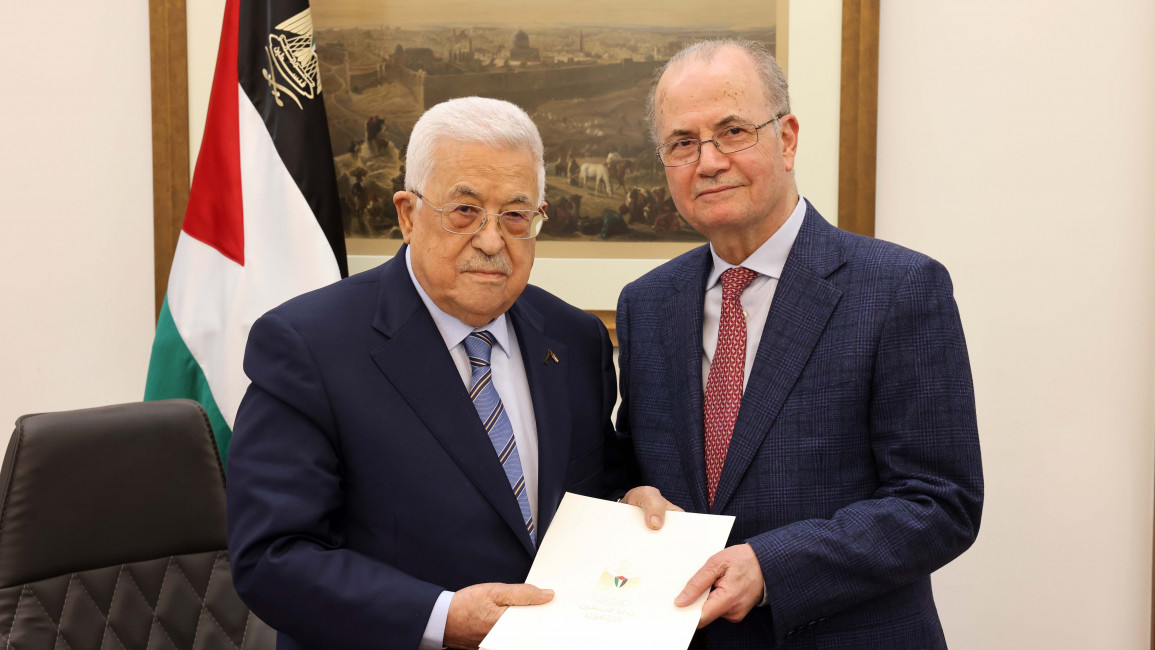New Palestinian government that includes Gazans and four women gets wary greeting
A new Palestinian government that contains both Gazans and four women was sworn in Sunday, but was already facing scepticism from its own people.
The Palestinian Authority (PA) led by President Mahmoud Abbas is under pressure from Washington to prepare to step into the breach in the aftermath of the Gaza war and undertake reforms.
Newly appointed Prime Minister Mohammed Mustafa said his government's "top national priority" was ending the war as he named his new team.
He said his cabinet "will work on formulating visions to reunify the institutions, including assuming responsibility for Gaza".
President Abbas, 88, is being nudged by the United States to shake the creaking authority up so it can reunite the occupied West Bank and Gaza under a single rule after Israel's devastating war on the strip.
The PA has had almost no influence over the Gaza Strip since Hamas took power there in 2007 from Abbas's Fatah party.
Secretary of State Antony Blinken urged Abbas to make "administrative reforms" when the two men met in January.
Abbas's Ramallah-based administration has been hamstrung by Israel's decades-old occupation of the West Bank and his own unpopularity.
Mustafa, an economist and longtime Abbas adviser, said the "reconstruction" of the Palestinian territories was his main goal, with Gaza in ruins after six months of Israeli bombardment.
His new cabinet is made up of 23 ministers and includes four women and six ministers from Gaza, among them former Gaza City mayor Maged Abu Ramadan who has been given the health portfolio.
Among the new female faces is Varsen Aghabekian, a Palestinian-Armenian academic who will work alongside Mustafa in the foreign ministry, which he also controls.
'Deepen divisions'
The premier, who previously worked for the World Bank, said the issue of East Jerusalem, which Israel has illegally annexed and occupies, was also a top priority along with the "fight against corruption".
But the PA has been dogged by divisions, corruption scandals, and the authoritarian tendencies of its ageing leader.
Ali Jarbawi, a former PA minister and political scientist, said it faces massive challenges on all fronts.
"It is broke and it's in debt and can't pay its salaries, so it needs immediate financial support," he said.
And it needs to be accepted by both Fatah, which controls the West Bank, and Hamas in Gaza.
"Thirdly it needs a political horizon, from the international community, and a commitment to the two-state solution," Jarbawi said.
And none of that can happen unless the "Israeli government, the army and settlers in the West Bank ease the pressure" on Palestinians, he added.
Senior Hamas member Bassem Naim criticised Abbas's policies.
"His hijacking of the unified Palestinian decision-making" is dangerous for "our cause at this very critical stage in the history of our people," he told AFP.
He said Hamas "proposed sitting down for the sake of national dialogue and rebuilding the political system… but Abbas blocked all these attempts."
Hamas, Islamic Jihad, and the Marxist Popular Front for the Liberation of Palestine issued a joint statement earlier this month declaring that Mustafa's appointment would only deepen Palestinian divisions.
People on the streets of Ramallah, where the authority is based, were equally sceptical.
"Changing the government will not solve anything because change to us comes only from the outside," said 56-year-old Suleiman Nassar.
"We know very well that any minister or any Palestinian government will not get in without an American or Israeli" approval, he said.



